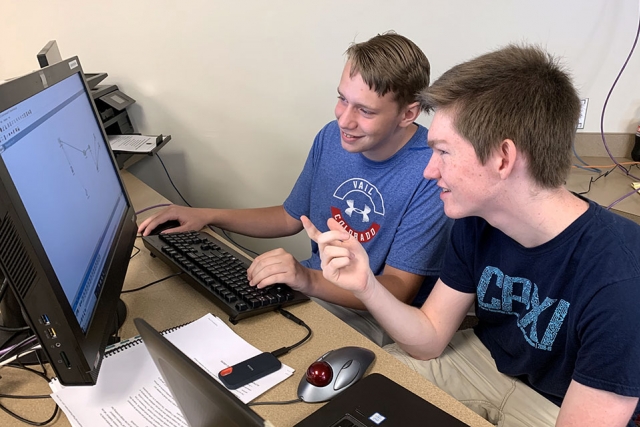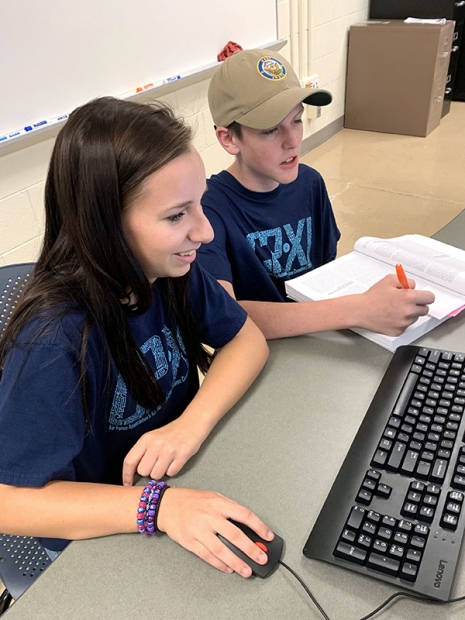
For generations of students, lunchtime has been a favorite part of the school day. For a group of students at Oak Ridge High School in Tennessee, however, the midday break took a back seat to cybersecurity sleuthing.
“I could sit for hours working puzzles, not stopping for anything, and a computer is just a big puzzle,” said Elizabeth, an ORHS junior and participant in a summer cybercamp sponsored, in part, by the Y-12 National Security Complex.
“I actually had to require students to leave their computers to eat lunch,” said Y-12’s Mike Hylton, who conducted the weeklong camp for 11 ORHS students.
Hylton, an instrumentation and controls design engineer in Y-12’s Cat 2 Design group, coached students in computer-based scenarios designed to teach fundamentals of computer networks, encryption, and cybersecurity. The Air Force Association’s Youth Cyber Education Program provided the curriculum materials.
“The program helps expose students to a basic awareness of how cybersecurity affects all of us in our everyday lives,” Hylton said. “It helps develop an interest in cybersecurity and other computer fields that are needed at Y-12 and in almost every government agency across the country.”
Campers worked in teams to find and correct vulnerabilities in operating systems of a fictitious company. They checked user passwords, files, software, and accounts for compliance with the company’s security policies and protected computers against viruses and hacking threats. The teams scored points for every vulnerability they corrected.
“I tried to make my computer as unhackable as possible,” said Elizabeth, who wants to become a cyberwarfare engineer for the Navy. “It was fun getting lost in the numbers behind what you see on the screen.”
Fellow camper Justin, a senior, said learning how computer systems work from the inside out makes him less vulnerable to being duped. “There are plenty of scams and cyberattacks out there,” he said. “The more you know, the better prepared you are.”
Hylton agreed. “It’s important to have basic knowledge of how our electronic information is transferred and shared, both intentionally and unintentionally,” he said. “We are at the point where it is almost impossible to function in a connected world without a great deal of information changing hands.”
Y-12 sponsors the camp as part of its educational outreach efforts to develop the science, technology, engineering, and math skills the site needs to fulfill its National Nuclear Security Administration mission.
